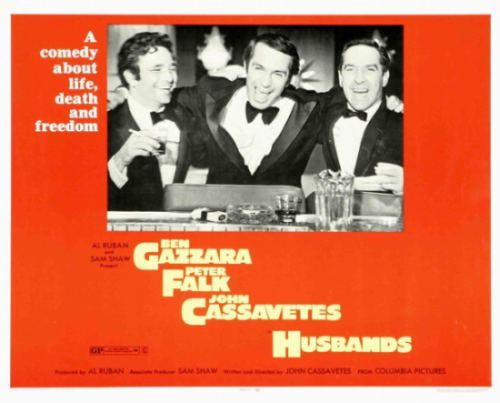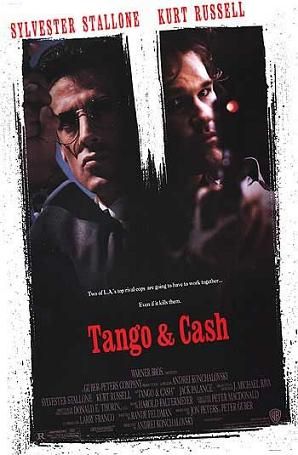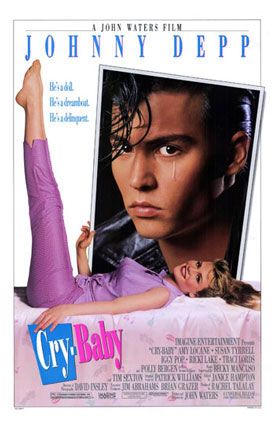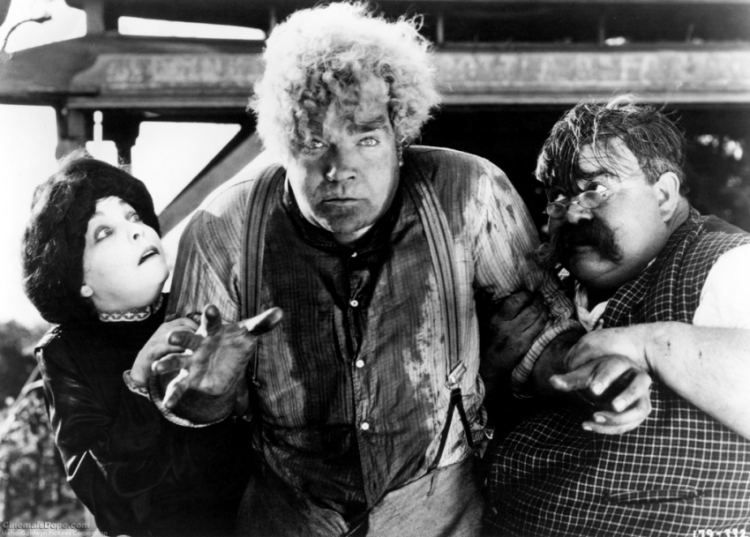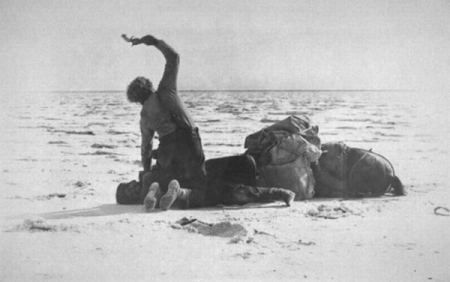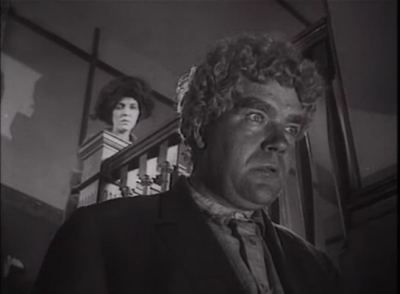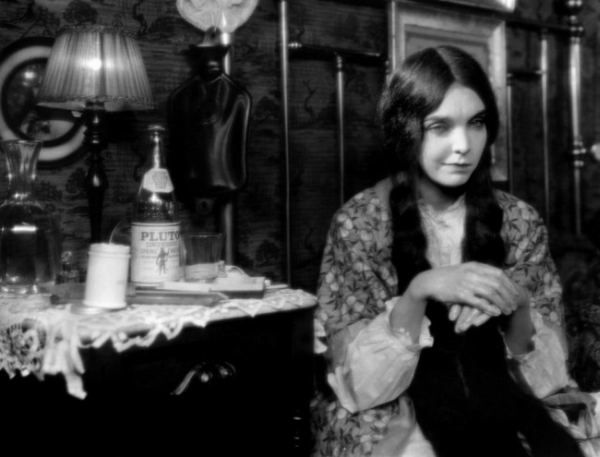Frenzy
(Alfred Hitchcock, 1972)
(Starring: Jon Finch; Barry Foster; Alec McCowen)
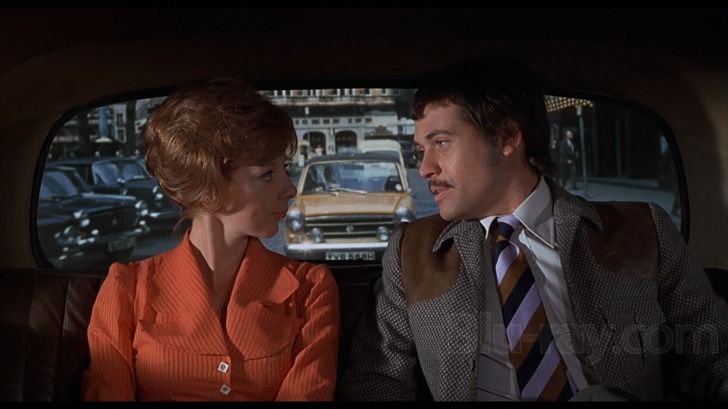
Maybe Alfred Hitchcock was scarred as a kid from always taking the blame for his siblings' misdoings, or maybe he just had an irrational fear of being falsely accused of a crime, but the innocent-man-found-guilty is a recurring motif that he explored in several films (The 39 Steps, The Wrong Man, North by Northwest, among others), and, in my opinion, much more effectively in previous films than in the uneven Frenzy. The lead character, due to his relationship with two of the victims and the fact that he's last seen near the scene of a crime, becomes the prime suspect in the ongoing hunt for a serial killer who rapes and strangles his victims with a necktie. The movie takes awhile to get going, but once the manhunt begins in the second half, things become much more compelling. Hitchcock, being the Master of Suspense, milks the tension and dread in a few key scenes, like the excellent sequence where the killer boards the back of a delivery truck to recover a piece of incriminating evidence, which is easily the highlight of the film.
No longer bound by the moral restrictions of earlier decades, Hitchcock is allowed a greater freedom to explore the perverse depths of the sexually deviant serial killer. The scene involving an attempted rape and the ensuing murder is appropriately disturbing. The camera doesn't shy away from the nudity or the heinousness of the act. Once we've seen the killer in action, however, Hitchcock makes the wise decision to allow the audience's imagination to fill in the ugliness about to befall his next victim. As the killer leads a woman into his apartment and delivers his ominous line ("You're my type of woman"), the camera slowly backtracks down the stairs and out of the building. The effect is chilling, since we know of the horrible deed that's taking place inside the building while everyone else in the vicinity remains oblivious.
On the downside, Frenzy lacks the focus and polish that I've come to expect from Hitchcock. I don't usually notice goofs, but there's an early scene in the movie where the lead actor, Jon Finch, is smoking a cigarette while engaged in conversation. Within the same scene, the cigarette changes length multiple times and constantly jumps from his mouth to his hand. The cigarette even disappears once or twice to magically reappear the next second. It's distracting and amateurish to see such jarring editing mistakes in any film, let alone a film by an all-time great like Hitchcock. Also, the last act of the film feels rushed. The lead detective in the case makes a surprising, unjustified turnabout in his suspicions. He spends three-fourths of the film convinced that Finch's character is the perpetrator, then, without seeing any reason for his change of thought, is suddenly convinced that Finch is innocent after all. For a movie that occasionally drags its feet in the first hour, it ends up feeling like several key scenes were either glossed over or omitted entirely, all at the sacrifice of the story.
Of the sixteen Hitchcock films I've seen, Frenzy definitely ranks near the bottom. But even if the movie fails to reach Hitchcock's usual heights, there's still plenty of good to be gleaned from it. After all, Hitchcock is arguably the greatest director of all time, so even his weaker efforts are worth watching.
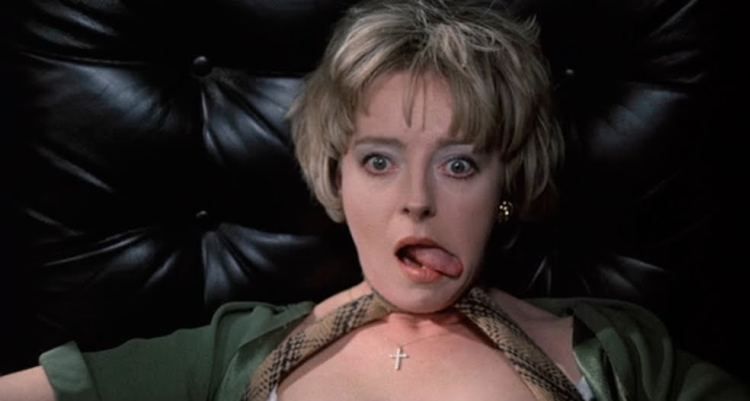
(Alfred Hitchcock, 1972)
(Starring: Jon Finch; Barry Foster; Alec McCowen)

Maybe Alfred Hitchcock was scarred as a kid from always taking the blame for his siblings' misdoings, or maybe he just had an irrational fear of being falsely accused of a crime, but the innocent-man-found-guilty is a recurring motif that he explored in several films (The 39 Steps, The Wrong Man, North by Northwest, among others), and, in my opinion, much more effectively in previous films than in the uneven Frenzy. The lead character, due to his relationship with two of the victims and the fact that he's last seen near the scene of a crime, becomes the prime suspect in the ongoing hunt for a serial killer who rapes and strangles his victims with a necktie. The movie takes awhile to get going, but once the manhunt begins in the second half, things become much more compelling. Hitchcock, being the Master of Suspense, milks the tension and dread in a few key scenes, like the excellent sequence where the killer boards the back of a delivery truck to recover a piece of incriminating evidence, which is easily the highlight of the film.
No longer bound by the moral restrictions of earlier decades, Hitchcock is allowed a greater freedom to explore the perverse depths of the sexually deviant serial killer. The scene involving an attempted rape and the ensuing murder is appropriately disturbing. The camera doesn't shy away from the nudity or the heinousness of the act. Once we've seen the killer in action, however, Hitchcock makes the wise decision to allow the audience's imagination to fill in the ugliness about to befall his next victim. As the killer leads a woman into his apartment and delivers his ominous line ("You're my type of woman"), the camera slowly backtracks down the stairs and out of the building. The effect is chilling, since we know of the horrible deed that's taking place inside the building while everyone else in the vicinity remains oblivious.
On the downside, Frenzy lacks the focus and polish that I've come to expect from Hitchcock. I don't usually notice goofs, but there's an early scene in the movie where the lead actor, Jon Finch, is smoking a cigarette while engaged in conversation. Within the same scene, the cigarette changes length multiple times and constantly jumps from his mouth to his hand. The cigarette even disappears once or twice to magically reappear the next second. It's distracting and amateurish to see such jarring editing mistakes in any film, let alone a film by an all-time great like Hitchcock. Also, the last act of the film feels rushed. The lead detective in the case makes a surprising, unjustified turnabout in his suspicions. He spends three-fourths of the film convinced that Finch's character is the perpetrator, then, without seeing any reason for his change of thought, is suddenly convinced that Finch is innocent after all. For a movie that occasionally drags its feet in the first hour, it ends up feeling like several key scenes were either glossed over or omitted entirely, all at the sacrifice of the story.
Of the sixteen Hitchcock films I've seen, Frenzy definitely ranks near the bottom. But even if the movie fails to reach Hitchcock's usual heights, there's still plenty of good to be gleaned from it. After all, Hitchcock is arguably the greatest director of all time, so even his weaker efforts are worth watching.

__________________
Last edited by Captain Spaulding; 05-30-14 at 11:01 PM.



 ).
).
